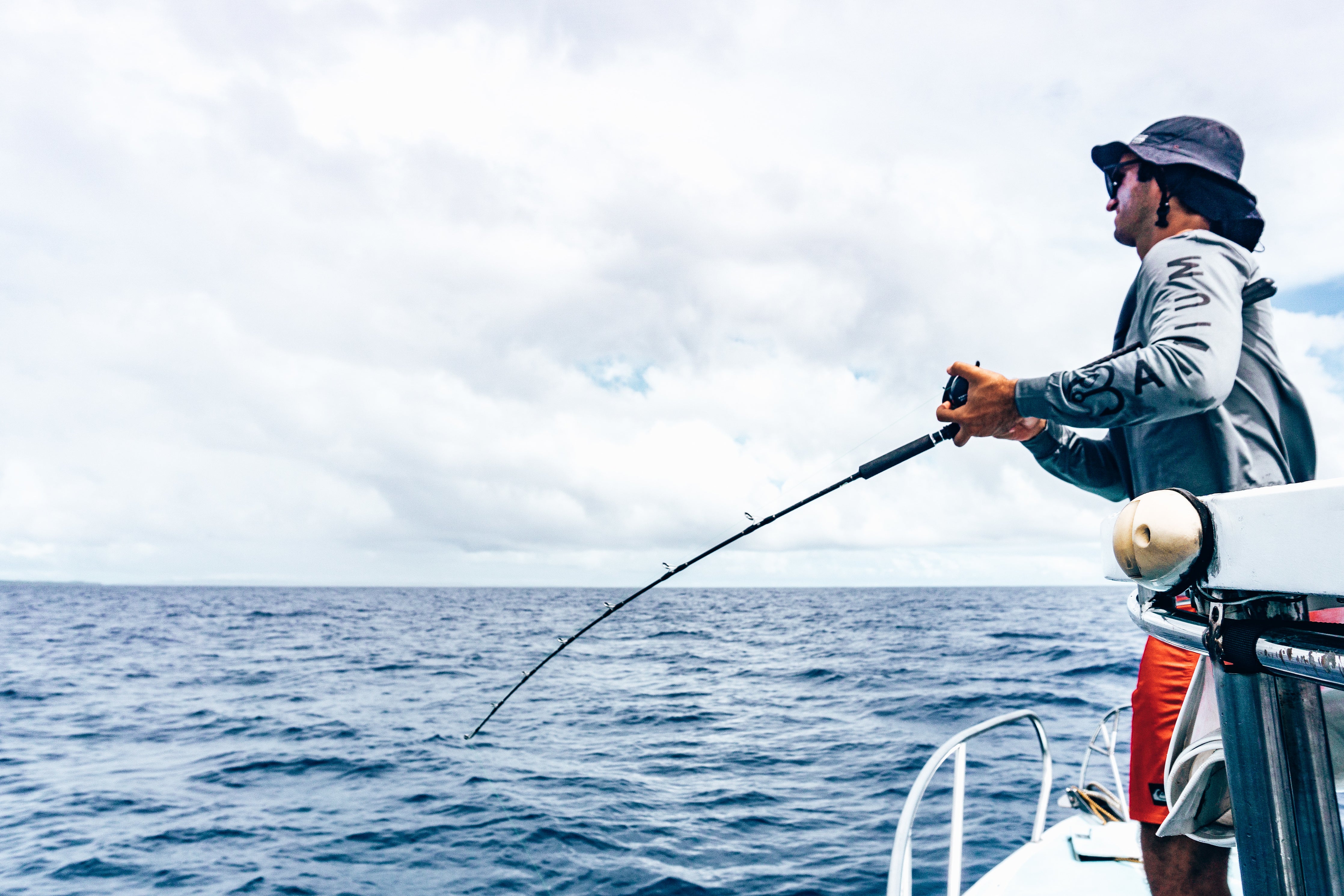Table of Contents
After some time lake fishing, we anglers are bound to start looking for new experiences. One of the common routes then is to give deep sea fishing a shot. But before jumping ship (no pun intended!), it’s best to be prepared, as fishing in lakes and seas are two different challenges altogether. If you’ve decided to give it a shot, you’ve come to the right place.
Pack the right equipment
Different bodies of water, different fish. The rods you use to catch small freshwater fish won’t work against the deep seas’ giants, such as marlins and tunas. Sturdier poles ranging from 1.5 to 4.5 meters and reels that pass 25-kilogram tests are generally recommended. But as Bluey’s writes, 35- to 45-kilogram lines may be necessary depending on the trophy fish you’re trying to reel in.
Dress for the occasion
Deep sea fishing means prolonged exposure to the sun and inevitably getting wet multiple times. This means you should wear clothes that (1) you wouldn’t mind exposing to water and (2) are sun protective, just like our shirts here at Baitium. For starters, you can check out the items below.
Depending on where you fish, the sun can get pretty brutal—so other than the clothes you wear, you should also bring some polarized sunglasses. While sunscreen is entirely optional, you should ideally wear ones without oxybenzone, butylparaben, and octinoxate, as they’ve been deemed harmful to the environment. Since there is still ongoing debate about whether or not sunscreen in general is bad for the environment, It’s still best to simply cover up with a hat and some long sleeves.
On the other hand, it could also get chilly out in sea, so bring layers that can also protect you from the cold. Other than what can keep you warm, though, a windbreaker should also be in order.
Bring the necessities, and more
Food, a first aid kid, water, and the like. The common stuff you already brought when you fished in lakes is still just as important in deep sea fishing. If you’ve hired a charter, they should already have a first aid kit ready, but it still won’t hurt to bring your own. Food and snacks are must-haves as well, since deep sea fishing usually takes up a long, long day. And no one can fish on an empty stomach.
Check your boat, the sea, and yourself
When hiring a charter, there’s oftentimes a recommended number of people that can be on board. It could get crowded if there’s too many of you, so it’s recommended that you check this out before booking one. Meanwhile, the “sea” we’re referring to here is the weather. You need to have checked weather forecasts from multiple sources to be more confident that you’re not about to brave a storm out at sea.
Of course, the fishermen and women themselves should also be checked. Does anyone have a hangover from last night’s drinking sesh? Did any of you eat anything that could upset your stomach before boarding the charter?
Another important question to ask is: Are any of you more prone to seasickness than others, and do you have the necessary medicine to help with it? If not, you might want to learn how to deal with seasickness on a boat—it happens more often than you think, even for seasoned anglers.
But to cut the long story short, you can remedy seasickness by (1) staying at the center of the boat or close to the stern, (2) not reading or not using your phone while on board, and (3) enjoying the view of the horizon to help your brain stabilize your view.
If you’ve checked all of these things, then buckle up and get ready for your deep sea fishing trip! It should be a more enjoyable one with the right gear and when safety precautions are taken properly.
MOST READ NEWS:
How To Use Your Fishing Records to Catch More Fish
Track your fishing trips, analyze patterns, and refine your techniques with a fishing log to catch more fish on every outing!
Solo Fishing Safety Tips: Stay Safe and Enjoy the Outdoors
Learn essential solo fishing safety tips: gear checklist, boat safety, emergency preparedness, weather monitoring & fishing location scouting. Stay safe on the water.
Secrets to Winter Fly Fishing Success
Master winter fly fishing with expert tips on trout behavior, essential gear, and proven techniques. Learn the secrets to catching more fish in cold weather.
How Cold Water Changes Fish Behavior: Insights for Anglers
Explore how cold water affects fish behavior and fishing techniques, enhancing your angling success and strategy.
Is Tech Making Fishing Too Easy? Exploring Forward-Facing Sonar (FFS)
Learn about forward facing sonar in fishing - what it is, how it works, rules for tournaments, ethics, and tips for finding fish with this game-changing technology.
Plan Your Best Fishing Trip Yet this 2025: A Complete Guide
Plan your fishing trip this off-season. Learn to choose destinations, prep gear, pick bait, and trust Baitium for expert tools and tips!
15 Fishing Resolutions for 2025: Set Yourself Up for Success
Discover 15 essential fishing resolutions for 2025: tackle organization, gear maintenance, angling techniques, conservation tips, tournament prep, and fishing safety guidelines.


